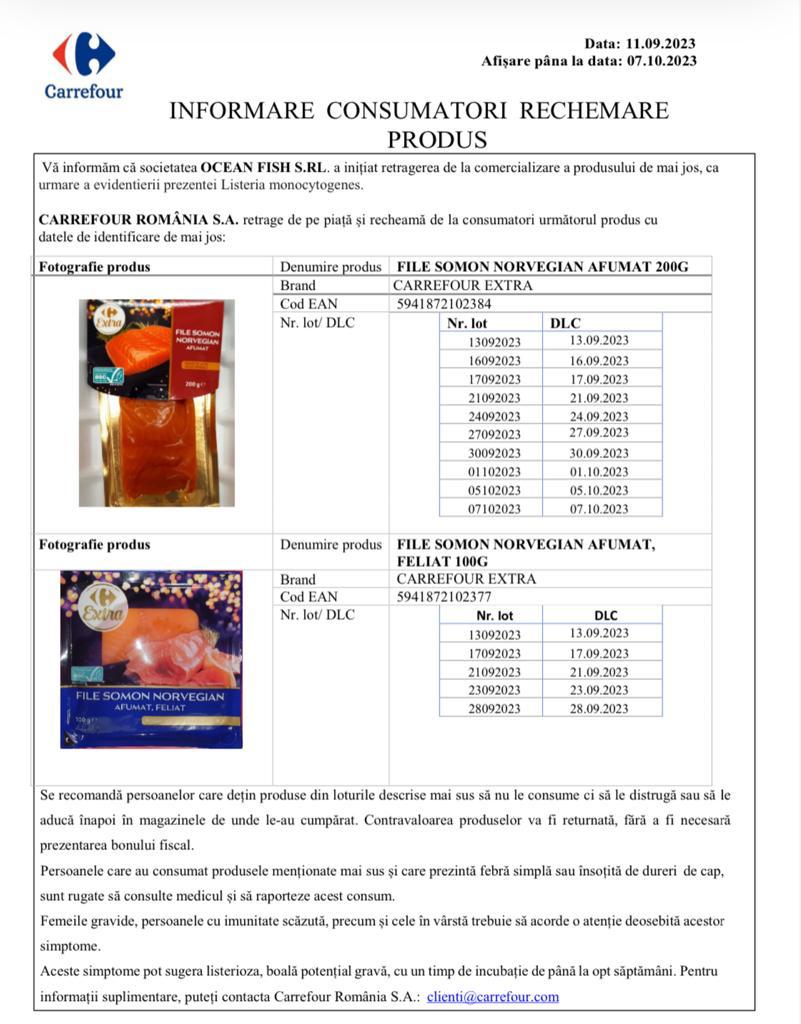
Several batches of smoked Norwegian salmon fillet produced by Ocean Fish have been withdrawn from sale in hundreds of Carrefour stores, due to the presence of Listeria monocytogenes, a bacterium that can cause listeriosis, announced the National Veterinary and Food Safety Administration (ANSVSA).
According to the ANSVSA, Ocean Fish is withdrawing two varieties of Norwegian smoked salmon fillets “due to the presence of Listeria monocytogenes”.

- The list of Carrefour stores from which these products have been removed can be viewed here
Those who have products from these batches are advised not to use them, but to destroy them or return them to the stores where they purchased them. The cost of the products will be refunded without the need to present a tax receipt.
- “People who have consumed salmon from these batches and have a common fever or headache are asked to consult their doctor and report this consumption.
- Pregnant women, people with reduced immunity, as well as the elderly should pay special attention to these symptoms.
- These symptoms may indicate listeriosis, a potentially serious illness with an incubation period of up to eight weeks,” the ANSVSA said in a statement.
What is Listeria monocytogenes
Listeria monocytogenes is a Gram-positive, facultatively anaerobic bacterium that causes listeriosis, a disease commonly transmitted through food. According to data published on ANSVSA, the bacterium is often present in the environment, in soil, vegetation and animal faeces, but it can also be isolated in raw foods such as fresh meat, raw milk and fish. website.
The ubiquity and exceptional ability to grow or survive under refrigeration conditions, compared to most other microorganisms, make Listeria monocytogenes a serious problem for the food industry. This is especially true for ready-to-eat (RTE) foods, where Listeria monocytogenes can thrive, the ANSVSA also states.
Listeria monocytogenes can grow and multiply in host cells and is one of the most virulent foodborne viral agents, accounting for 20-30% of foodborne listeriosis infections.
According to the Queen Mary Clinic website, Listeria monocytogenes can infect the brain, spinal cord membranes, and/or bloodstream of a host by consuming contaminated food, such as unpasteurized milk or raw food. The incubation period varies from several days to several weeks, and listeriosis can affect any organ by lymphatic or hematogenous routes.
Source: Hot News
Ashley Bailey is a talented author and journalist known for her writing on trending topics. Currently working at 247 news reel, she brings readers fresh perspectives on current issues. With her well-researched and thought-provoking articles, she captures the zeitgeist and stays ahead of the latest trends. Ashley’s writing is a must-read for anyone interested in staying up-to-date with the latest developments.